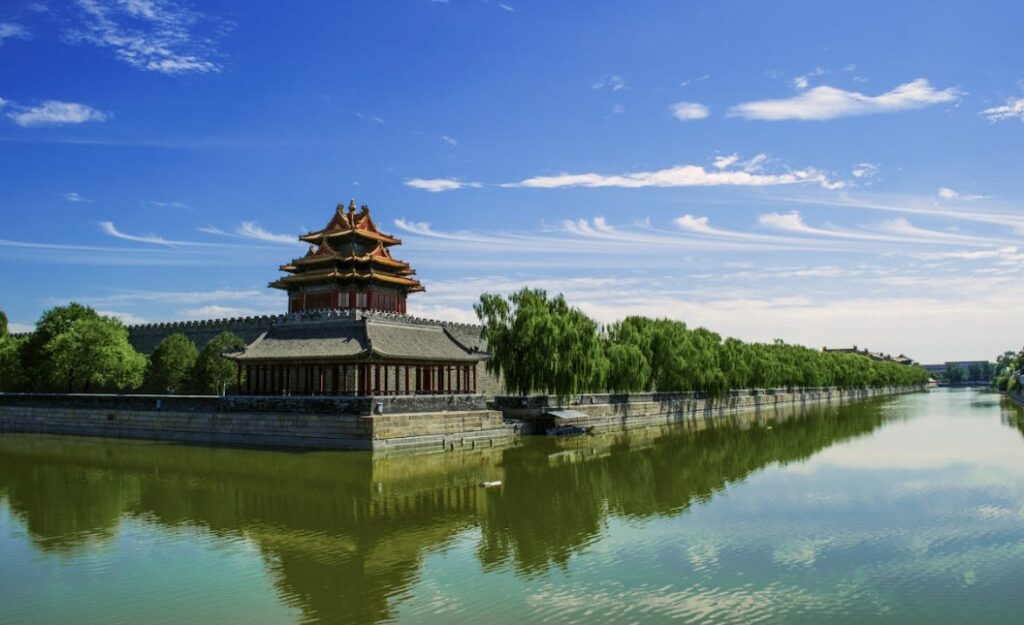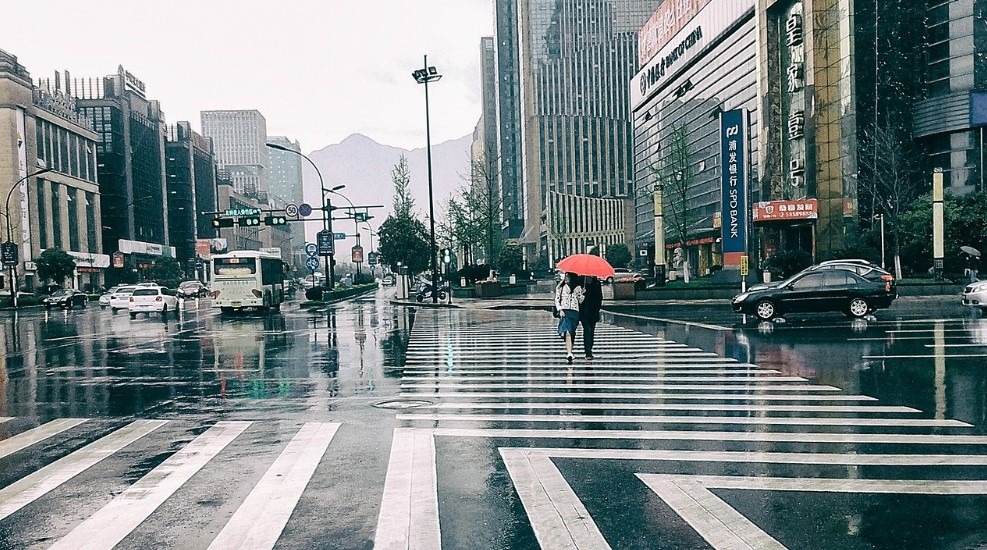First Time in China? Don’t Miss These 20 Must-Know Travel Tips
Embarking on your first trip to China is an experience that promises a mixture of excitement and challenges. As a country steeped in history, rich culture, and stunning natural landscapes, it offers something for every kind of traveler. Whether you’re exploring bustling cities, trekking through ancient temples, or sampling the local cuisine, proper planning is crucial for ensuring a seamless adventure.

As a professional travel planner, my goal is to provide you with the best insider tips to enhance your trip and help you avoid common mistakes. In this detailed guide, I’ll walk you through everything you need to know, from packing essentials to navigating cultural norms, so you can fully enjoy your first visit to China without any unwanted surprises. Let’s get started!
1. Packing Essentials: What You Shouldn’t Leave Behind
Packing for China requires some forethought, as the country’s vast size and varied climates mean you’ll need to be prepared for different conditions. Be sure to pack a range of clothing to layer in case of unpredictable weather, especially if you’re traveling to different regions. Depending on your itinerary, you may experience anything from humid tropical climates to frigid mountain temperatures.
When it comes to travel documents, ensure you have copies of your passport and visa in both digital and paper formats. Many establishments, particularly hotels, will ask for these, and it’s always good to have a backup in case they’re misplaced. Cash is still king in many parts of China, especially in rural areas. While larger cities accept credit and debit cards, cash is essential for smaller shops and restaurants. Don’t forget to pack a travel-sized first aid kit that includes pain relievers, bandages, and any prescription medications you may require. Lastly, China’s power outlets are different from many Western countries, so bring a universal adapter to keep your devices charged.
2. The Importance of a VPN: Accessing Your Online World
One of the most important things to know before traveling to China is the country’s internet restrictions. Popular Western sites like Google, Facebook, Instagram, and YouTube are blocked due to the country’s strict internet regulations. To ensure you can still access important apps and sites while traveling, you’ll need to set up a Virtual Private Network (VPN) before you arrive. A VPN will allow you to bypass these restrictions and use the internet freely. Without it, you may find yourself cut off from your usual online resources. Be sure to choose a reputable VPN service and test it before leaving, as you may not be able to download one once you’re in China.
3. Dealing with Air Pollution: Be Prepared, Not Surprised
Air pollution is a concern in certain parts of China, especially in industrial cities like Beijing, Tianjin, and Wuhan. While air quality has improved in recent years thanks to government efforts, it’s still a factor you should be aware of. Travelers with respiratory issues should take extra precautions, including bringing along a medical-grade dust mask for days when pollution levels are high. You can monitor the air quality using apps specifically designed for this purpose, which will help you decide if it’s a good day for outdoor activities. Visiting during spring or fall can minimize your exposure to pollution, as these seasons tend to have better air quality. If clean air is a priority for you, avoid the winter months when smog levels tend to peak.
4. Choosing the Best Time to Visit: Timing is Everything
When planning your trip to China, it’s crucial to consider the best time of year for your particular itinerary. Spring (March to May) and fall (September to November) are widely regarded as the best seasons for travel, thanks to the pleasant weather and moderate tourist crowds. In spring, the countryside is vibrant with blooming flowers, while fall offers breathtaking foliage and comfortable temperatures.
Summers, on the other hand, can be extremely hot and humid, especially in southern China. Winter is cold and dry in the north, making it less ideal for those unaccustomed to freezing temperatures. However, if you enjoy skiing or winter sports, northern regions like Harbin and its famous Ice Festival are worth the chilly weather. Always research the specific climate of the regions you plan to visit, as China’s vastness means the weather can vary dramatically from one area to the next.
5. Avoiding Chinese Holiday Crowds: Save Yourself the Headache
China is known for its massive domestic travel spikes during national holidays, particularly the Spring Festival (Chinese New Year) and National Day, celebrated on October 1. Millions of people travel across the country during these periods, causing a surge in hotel prices, sold-out transportation options, and overwhelmingly crowded tourist destinations. If possible, avoid these peak times to save yourself the frustration of navigating crowded cities and attractions. If you must travel during these times, be sure to book everything well in advance and prepare for longer lines and higher costs. Your professional travel planner can assist in finding quieter locations during these busy times, allowing you to enjoy a more relaxed and authentic experience.
6. High-Speed Trains: The Best Way to Explore China
While flying between cities is often an option, China’s extensive network of high-speed trains offers a more convenient and scenic alternative. These trains are modern, clean, and often faster than flying when you consider the time it takes to get to and from airports. The high-speed rail system connects major cities like Beijing, Shanghai, Xi’an, and Guangzhou, making it easy to cover large distances quickly.
Tickets can be booked online or through a travel planner who can ensure you secure the best seats. First-class and business-class options are available on most trains, offering more spacious and comfortable seating if you prefer a bit of luxury on your journey. Be sure to book your tickets early during busy travel seasons to guarantee your spot, as trains can fill up quickly.
7. Private Transport Over Public Taxis: A Smarter Choice
Getting around in China can be tricky if you’re unfamiliar with the local transportation systems. Public taxis are readily available in most cities, but they can be difficult to navigate, especially if you don’t speak Mandarin. Unlicensed taxi drivers may try to take advantage of tourists, often overcharging for short rides. To avoid this, consider hiring a private driver or using ride-hailing apps like Didi, which is China’s equivalent of Uber. Many private transport services offer English-speaking drivers, making it much easier to get around and ensuring you reach your destination safely and efficiently. Hiring a private driver for the day is also a great option if you plan to visit multiple sites or explore areas outside the city.
8. Pedestrian Safety: Stay Alert on Sidewalks

While China’s cities are generally safe for tourists, there are a few quirks you should be aware of when walking around. One of these is the use of sidewalks by motorbikes and even cars in some areas. It’s not uncommon to see vehicles parked or driving along sidewalks, particularly in busy urban centers. As a pedestrian, always stay alert when crossing streets or walking along the side of the road. Even in areas designated for pedestrians, you may need to quickly move out of the way for an approaching vehicle.
Use pedestrian crossings whenever possible and be mindful that traffic rules in China are not always strictly followed. Drivers may not stop for pedestrians at crosswalks, so it’s essential to be vigilant and cautious when navigating busy streets.
9. Personal Space: Adjusting to Local Norms
One cultural difference that many first-time visitors to China notice is the lack of personal space, particularly in crowded areas. Whether you’re standing in line, riding public transportation, or walking through a bustling market, don’t be surprised if people bump into you without an apology. This isn’t considered rude in China but is simply a result of living in densely populated areas.
However, when it comes to public displays of affection, China tends to be more conservative. You won’t see much hand-holding or kissing in public, so it’s best to follow local norms and keep affection more private. If you’re unsure of how to behave in a certain situation, simply observe the locals and follow their lead.
10. Learning Basic Mandarin Phrases: Make an Effort
While many people in major cities and tourist areas speak some English, learning a few basic Mandarin phrases can go a long way in enhancing your travel experience. Not only will it help you navigate day-to-day interactions like ordering food or asking for directions, but it also shows respect for the local culture.
Simple phrases like Ni hao (hello), Xie xie (thank you), and Duo shao qian? (how much does this cost?) can make a big difference. Even if your pronunciation isn’t perfect, locals will appreciate the effort. Many tourists rely heavily on translation apps, which are useful but shouldn’t replace basic language knowledge. A travel planner can help you learn these essential phrases or recommend language apps to use during your trip.
11. Expect Curiosity: Foreigners are a Novelty in Some Areas
In more remote areas of China, you may find that locals are not as accustomed to seeing foreign travelers. Don’t be surprised if people stare at you or ask to take pictures. This isn’t meant to be rude or intrusive; it’s simply a reflection of their curiosity about foreigners.
In some cases, people may ask you personal questions about your family, your job, or your home country. While these questions might seem intrusive by Western standards, they’re often just a way for locals to connect with you. If you’re uncomfortable answering certain questions, a polite smile and a change of subject will usually do the trick.
12. Respect Religious Sites: Honor Local Customs
China is home to many ancient temples and religious sites, each with its own customs and traditions. Whether you’re visiting a Buddhist temple or a Taoist shrine, it’s important to show respect by adhering to local practices.
Keep your voice low, dress modestly, and avoid taking photos in areas where it’s forbidden. In many temples, you’ll see locals praying or making offerings, so be mindful not to disturb them. If you’re unsure of how to behave at a religious site, your travel planner can provide guidance on appropriate etiquette to ensure you don’t accidentally offend anyone.
13. Chinese Dining Etiquette: What You Should Know
Dining in China is an experience unto itself, with regional cuisines offering a wide range of flavors and dishes. Whether you’re enjoying dim sum in Guangdong or hotpot in Sichuan, understanding Chinese dining etiquette will help you blend in with locals.
At the table, it’s common for dishes to be shared, so don’t expect to order individual meals. Use the communal chopsticks provided to serve yourself, and never stick your chopsticks upright in a bowl of rice, as this resembles incense used in funerals. Slurping noodles is not only acceptable but also encouraged, as it shows appreciation for the food.
If you’re invited to a banquet or a family meal, you may be offered more food than you can handle. It’s polite to sample each dish, but don’t feel obligated to finish everything on your plate. Your host will appreciate the gesture of trying different foods, even if you can’t eat it all.
14. Bargaining at Markets: How to Get the Best Deal
If you plan to shop at local markets or street vendors, be prepared to bargain. Haggling is a common practice in China, especially in tourist areas where prices are often inflated for foreigners. Start by offering about half of the asking price, and expect the seller to counteroffer.
Bargaining should be done with a smile and a friendly attitude; it’s all part of the experience. However, if you feel uncomfortable haggling or are unsure of the local market customs, your travel planner can assist in negotiating on your behalf.
15. Stay Hydrated and Eat Well: Maintaining Your Health
China’s vast array of street food and local delicacies is one of the highlights of any trip, but it’s important to be cautious about where you eat, particularly when it comes to street vendors. To avoid stomach issues, stick to vendors that are popular with locals and have a high turnover of food.
Tap water in China is not safe to drink, so always carry a bottle of bottled water with you. Many hotels provide complimentary bottled water in your room, and it’s widely available at convenience stores. Staying hydrated is especially important in hot and humid regions, where the heat can quickly take its toll. If you’re planning to do a lot of walking or hiking, pack some healthy snacks like fruit or nuts to keep your energy up throughout the day.

16. Plan for Public Restrooms: Bring Your Own Supplies
One aspect of traveling in China that often surprises visitors is the state of public restrooms. While most hotels, restaurants, and tourist sites have modern facilities, many public restrooms—especially in rural areas—are squat toilets, and toilet paper is rarely provided.
It’s a good idea to carry a small pack of tissues and hand sanitizer with you at all times. Some larger cities have Western-style toilets in certain locations, but it’s always best to be prepared for squat toilets. If you’re not familiar with how to use one, your travel planner can provide tips before your trip.
17. Cultural Sensitivity: Understanding Chinese Customs
China has a rich cultural heritage that may differ from what you’re used to, so it’s essential to be respectful of local customs. For instance, giving gifts is an important part of Chinese culture, particularly in business or social settings. When presenting or receiving a gift, always use both hands as a sign of respect.
It’s also customary to refuse a gift once or twice before accepting it, as immediate acceptance can be seen as rude. When visiting someone’s home, it’s polite to bring a small gift, such as fruit or tea, and to remove your shoes upon entering. Your travel planner can advise on other cultural nuances to help you avoid any faux pas during your stay.
18. Safety and Security: Staying Aware
China is generally a safe country for travelers, with low rates of violent crime. However, as with any destination, it’s important to stay aware of your surroundings and take precautions to protect your belongings. Pickpocketing can occur in crowded areas, so keep an eye on your bags and avoid carrying valuables in easily accessible pockets.
If you’re traveling alone, it’s a good idea to check in with someone regularly and avoid wandering in unfamiliar neighborhoods at night. Your travel planner can recommend safe areas to explore and provide emergency contact information in case you encounter any issues.
19. Plan Ahead: Avoid Last-Minute Stress
One of the best ways to ensure a smooth trip is to plan ahead, and this is where a professional travel planner can be invaluable. From booking your flights and accommodations to arranging guided tours and transportation, a travel planner can handle the logistics so you can focus on enjoying your trip.
China’s vastness means that last-minute changes to your itinerary can be difficult to accommodate, particularly during peak travel seasons. Working with a travel planner ensures that every detail is taken care of, so you won’t have to worry about sold-out tickets or long lines. They can also recommend off-the-beaten-path destinations that offer a more authentic experience away from the crowds.
20. Pack Your Patience: Embrace the Experience
China is a country unlike any other, and part of the adventure is embracing its unique blend of ancient traditions and modern innovations. Whether you’re navigating crowded streets, dealing with language barriers, or adjusting to cultural differences, packing a little extra patience will go a long way.
Keep an open mind, expect the unexpected, and remember that every challenge is an opportunity to learn more about this fascinating country. With careful planning and the guidance of a professional travel planner, you’re sure to have a fulfilling and unforgettable experience.
Ready to embark on the adventure of a lifetime in China? The Trip Atelier takes the stress out of vacation planning. Schedule a consultation and start crafting a memorable vacation.






